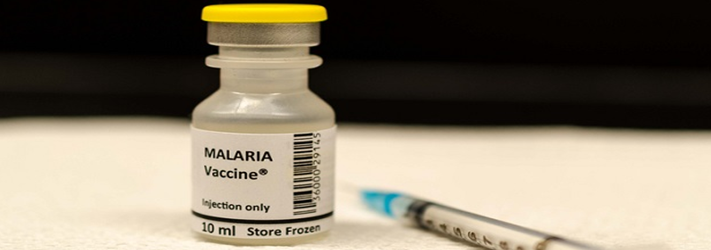In a landmark announcement, the World Health Organization (WHO) has recommended the use of the first-ever malaria vaccine for children. WHO Director-General Tedros Adhanom Ghebreyesus endorsed the RTS,S/AS01 malaria or Mosquirix – a vaccine developed by British drugmaker GlaxoSmithKline (GSK).
The WHO has recommended extensive use of the RTS,S/AS01 vaccine among children in Sub-Saharan Africa and other regions with moderate to high malaria transmission. The vaccine acts against the deadliest malaria transmission parasite, P. falciparum, which is prevalent in Africa. The symptoms of malaria are–fever, headaches, and muscle pain, then cycles of chills, fever, and sweating.
According to Tedros, ” RTS,S malaria vaccine – more than 30 years in the making – changes the course of public health history. This vaccine is a gift to the world”.
The WHO said in a statement it was recommending the widespread application of the vaccine among children in sub-Saharan Africa and other regions with moderate to high malaria transmission.
Many vaccines exist against viruses and bacteria, but this was the first time that the WHO recommended broad use of a vaccine against a human parasite.
According to the latest World Malaria Report, there were an estimated 229 million cases of malaria globally in 2019, with the WHO African region accounting for 94 per cent of all cases and deaths.
A child under five years old dies of malaria every two minutes, according to UNICEF estimates, while WHO says that malaria is responsible for 260,000 deaths each year in children under five in Africa.
The third phase of clinical trials revealed that the vaccine was 50 per cent efficacious in preventing malaria in children aged between five and 17 months. The vaccine is given in three doses between these ages, with a fourth dose about 18 months later.
According to Reuters news agency, experts said the challenge now would be mobilising financing for production and distribution of the vaccine. GSK has to date committed to producing 15 million doses of Mosquirix annually up to 2028 at a cost of production plus no more than 5% margin.
A global market study led by the WHO this year projected demand for a malaria vaccine would be 50 to 110 million doses per year by 2030 if it is deployed in areas with moderate to high transmission of the disease.
Resources:
https://www.livemint.com/science/health/who-approves-world-s-first-malaria-vaccine-11633573233450.html
The European Union (EU) has agreed to offer Indian pharmaceutical and medical devices companies preferential access to EU market, along with cutting tariffs on 97.5 percent of chemical products to zero.
As we approach the close of this year, we at ExSyn would like to extend our heartfelt gratitude for your trust, collaboration, and continued support. Your confidence in our products and services has been the driving force behind our growth and success.
The U.S. Food and Drug Administration (FDA) today announced significant action to make it faster and less costly to develop biosimilar medicines, which are lower-cost “generic” alternatives to biologic drugs that treat serious and chronic diseases.
Products containing titanium dioxide in the EU are no longer required to carry warnings about cancer risk, after the European Chemicals Agency (Echa) revoked its classification as a suspected carcinogen. The move follows a June 2025 decision by the Court of Justice of the European Union and means that safety data sheets, labelling and packaging requirements for titanium dioxide have been relaxed across industries including paints, pharmaceuticals, cosmetics and food.
The economic impact of biosimilars on the Australian health care system is now clearer, with data revealing their role in reducing market expenditure and driving price competition.
The Chinese Golden Week impacts Ocean Freight Shippers for two main reasons:
Donald Trump’s tariffs of 50% have come into force on most US imports from India. India’s giant generic pharmaceuticals sector and its electronics and petroleum products are exempt from the tariffs. Aluminium, steel and copper remain at 25%, but job-heavy sectors such as textiles, jewellery, seafood and leather are squarely in the line of fire.
The European Chemicals Agency (ECHA) has published the updated proposal to restrict per- and polyfluoroalkyl substances (PFAS) under the EU’s chemicals regulation, REACH. The update has been prepared by the authorities from Denmark, Germany, the Netherlands, Norway and Sweden, who submitted the initial proposal in January 2023.
Most chemicals exported from the 27 member countries of the European Union into the US will be subject to a 15% tariff on top of their selling prices under an agreement signed on July 27 between the US and the European Commission.
